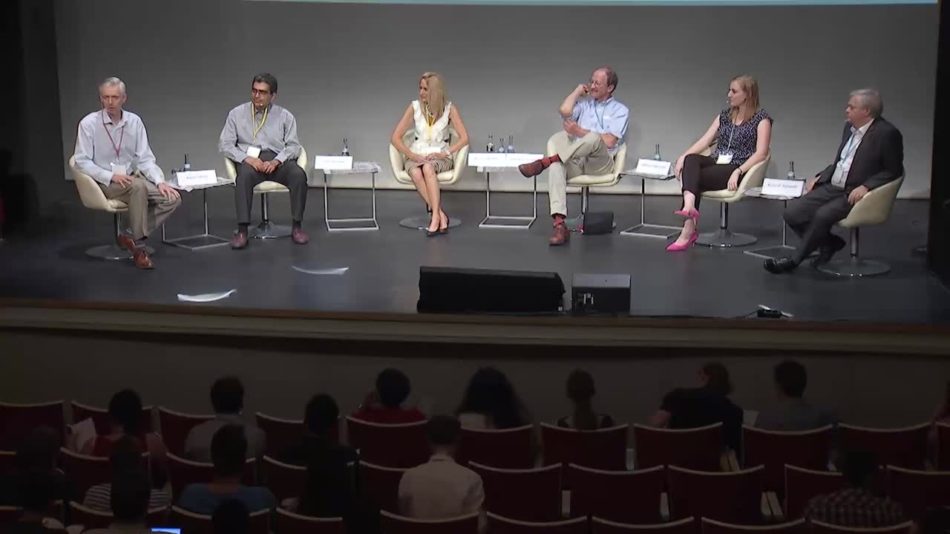Panel discussions are an excellent way to bring live, organic dialogue to an audience setting. The true magic resides in the fact that each speaker has the opportunity to build upon others’ commentary, creating a unique event meant to provide immense value to everyone involved.
In the same way that panels have the potential to be extremely successful – bringing a slew of interesting points of view together into one session – they have the potential to be less than effective. A poorly organized panel can manifest in many ways: speakers competing for the spotlight, disjointed talking points, technical issues, audience interruptions and more.
Due to their spontaneous nature, panel discussions are trickier to organize than a more traditional presentation. But the payoff can also be greater because the panelists and audience members build something together. Organizing a successful panel discussion depends on a number of factors. Here are four tips for doing so.
Choose and Prepare Your Moderator
The outcome of a panel discussion depends heavily on its moderator. You need someone who can keep time, forge a bond with speakers and audience members, redirect the conversation as needed and stay entertaining to boot. It’s also imperative that your chosen moderator prepares ahead of time by researching the topic at hand and communicating with panelists. After all, if the moderator is unprepared for the discussion, the overall quality will suffer greatly.
Working with your moderator to create an outline ahead of time will help everything proceed smoothly on the big day.
Set an Engaging Panel Lineup
The “meat” of your panel depends entirely upon the speakers you ask to join. That’s why it’s so important to clearly define your goals and theme before setting a lineup. Toastmasters recommends using the acronym DEEP when you’re selecting panelists:
- Diverse: A solid panel includes a full breadth of perspectives and opinions.
- Expertise: Inviting speakers with authority makes it easier for them to establish credibility and may even draw audience members.
- Eloquent: Panelists should be engaging and capable of speaking extemporaneously at length.
- Prepared: Make sure panelists have the time and dedication to prepare for your event.
Let your underlying goal guide your panel lineup rather than the other way around. For example, a recent panel featuring women in tech sales proved to be an excellent response to underrepresentation within the industry. In fact, the response was so positive the original event became a series—meant to build a community around a core issue. At a second event, three sales executives from San Francisco-based tech companies led an empowering conversation that resonated deeply with the audience. This is the power of organizing a panel based on goals and real demand.
Prioritize the Audience Experience
At the end of the day, you want your audience to retain useful takeaways from your panel. This means building in time for audience retention, facilitating a Q&A session and ensuring speakers communicate in a way that’s conducive to audience understanding. Your moderator can help by making apt analogies and summing up key points along the way.
Streamline the Physical Setup
A seamless panel must facilitate a genuine connection between speakers and viewers. Even the physical setup has the potential to put up boundaries or create a shared space. One option is recreating a living-room setup meant to put the audience at ease, almost as if they’re watching their friends talk. Another option, slightly more formal, is putting up stools near the front of the stage. Highly professional or scientific discussions may call for a more traditional table-and-chairs setup—but a word of warning: this tends to create distance with the audience, so use it only when the medium fits the message.
Focusing on your panelists, moderator and audience will help you organize a successful panel discussion.


